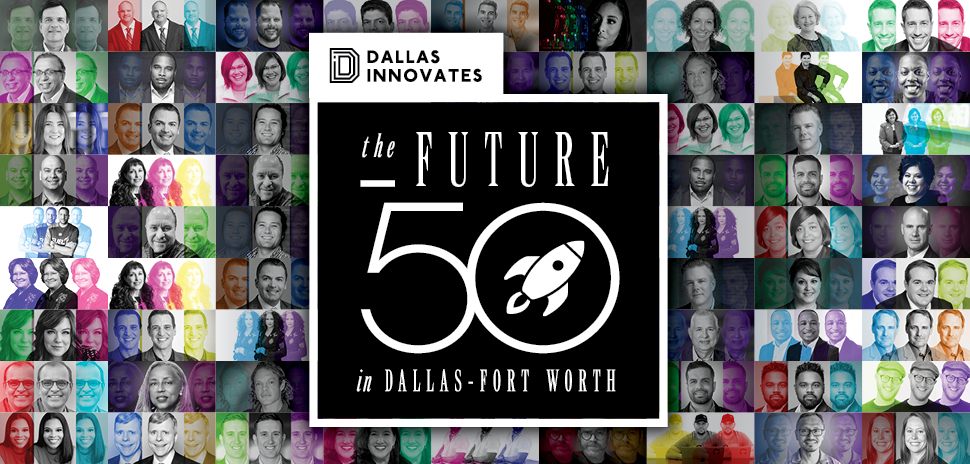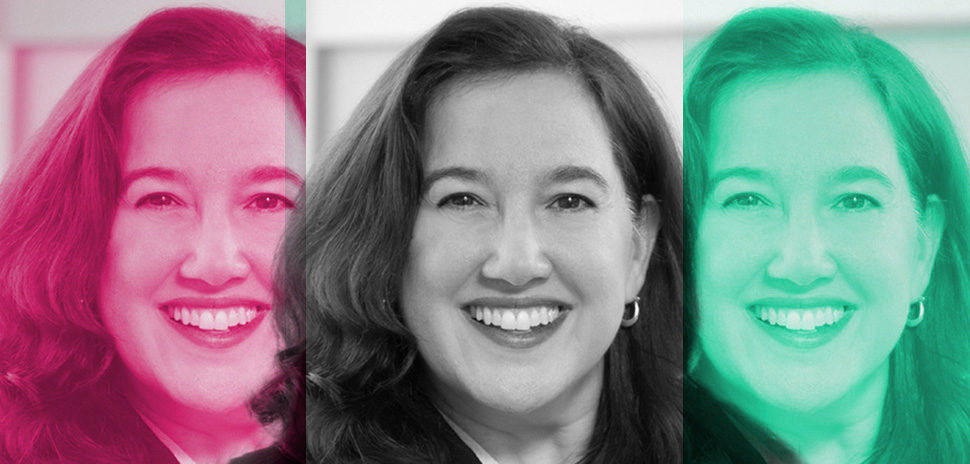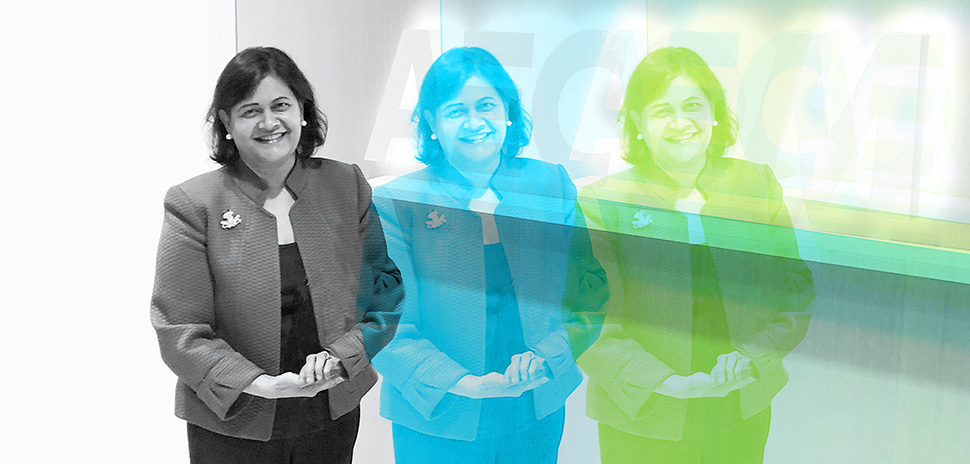Here are the innovators and disruptors who are blasting North Texas into the future.
Their secret weapon? The resilience that helped them conquer a rocky year and has them poised for 2021. They’ve scored big wins by hanging tough, doubling down, and being the right people with the best idea at the perfect time. Our editors’ picks are inventors, leaders, technologists, educators, and industry pioneers. From startup renegades to corporate kingpins to first-of-kind product launchers, they’re minting our future daily—and aiming to make a difference. Get ready to meet 50 people who’ve put Dallas-Fort Worth on a rocket ride to tomorrow.
The Future 50 in Dallas-Fort Worth were featured in Dallas Innovates 2021 magazine: The Resilience Issue.
Quincy Preston, Alex Edwards, Lauren Hawkins, and Sandra Engelland contributed to this feature. Artwork by Michael Samples.
STARTUP
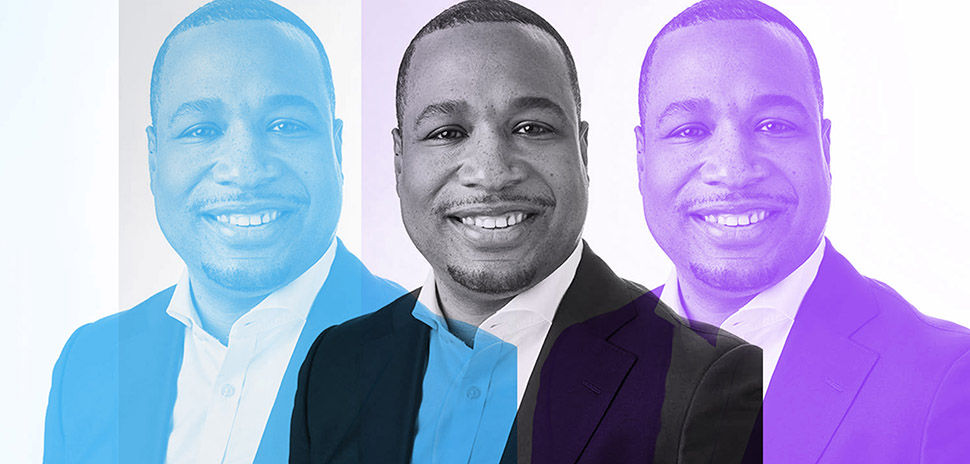 GENE THERAPY PIONEER
GENE THERAPY PIONEER
R.A. Session II
President, CEO, and Founder
Taysha Gene Therapies
Since emerging from stealth in 2020, Taysha Gene Therapies has been anything but quiet. Founded in 2019, Taysha got an explosive start with $125 million in Series A and B funding, followed by more than $157 million and a September IPO. On its first day of trading, Taysha saw a 20 percent rise in its stock price, despite launching during a global pandemic. From there, Session and his team have stayed focused on a primary goal: wiping out monogenic disorders of the central nervous system. In recent months, the biotech company received Rare Pediatric Disease Priority Review and Orphan Drug Designation from the FDA for its treatment for Rett Syndrome, a rare genetic mutation found mostly in toddler girls. None of this would be possible, Session says, without Taysha’s partnership with UT Southwestern and Drs. Steven Gray and Berge Minassian. Gray pioneered the spinal injection method for delivering a corrected gene into the central nervous system while Minassian is credited with discovering the location of the genetic mutation behind Rett Syndrome. 2021 looks to be another productive year, Session says, as Taysha plans to pursue more gene therapies with the FDA and move into offices at the new Dallas bio hub, Pegasus Park. They’ll also break ground on their own manufacturing facility, which Session says will allow his team of industry veterans to control their own manufacturing destiny, a common bottleneck in the field today.
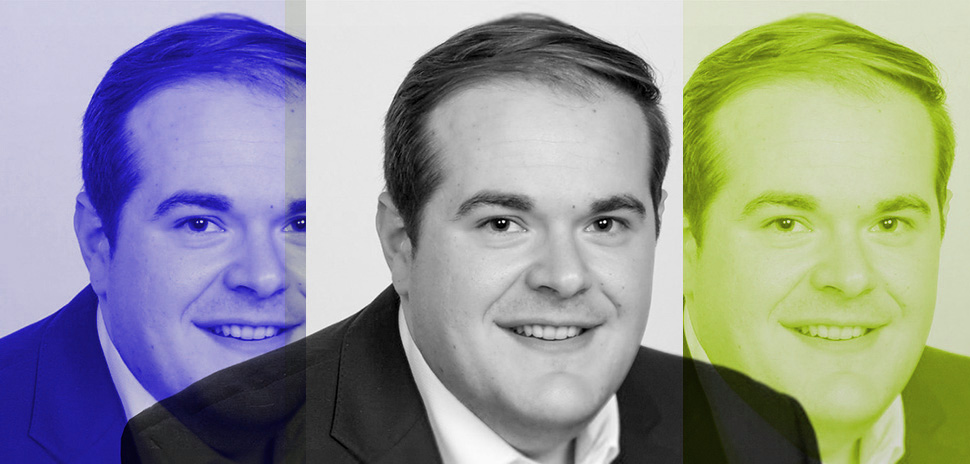 ANALYTICS ARCHITECT
ANALYTICS ARCHITECT
James Hancock
Co-Founder
Parasanti
Hancock calls Parasanti “the blue-collar analytics company”: It delivers AI and machine learning solutions to people who work hard. Founded in 2019, Dallas-based Parasanti provides analytics tools for the defense, agriculture, oil and gas, and (soon) space industries. Hancock says its analytics tool for agriculture saved farmers more than 360 million gallons of water in the last year, with the goal to save a trillion by 2024. Before co-founding Parasanti, Hancock served as the chief architect for Hewlett Packard’s public sector accounts, delivering DoD products designed to maximize mission success. He and Parasanti co-founder Joshua Seagroves, a veteran and former NSA data analyst, both had roots in ranching and farming, making the defense and ag solutions innovator a natural new fit.
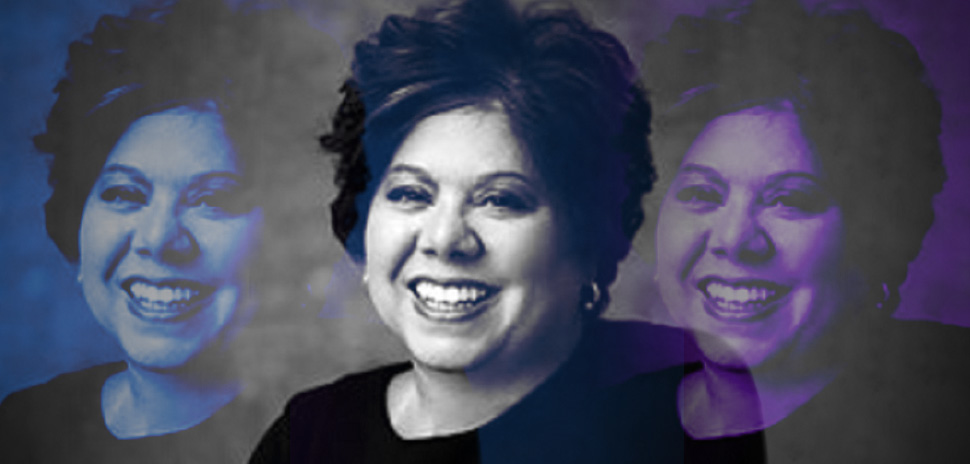 5G MOBILIZER
5G MOBILIZER
Evelyn Torres
CEO
Solaris Technologies Services
5G is taking over the world of communications, and it’s crucial to powering the IoT. But to stay up-to-date with the latest technology, cell tower providers need better towers—and location matters. That’s where Irving-based Solaris comes in. Torres leads a team that recently created a brand new 5G antenna design for its high-capacity mobile towers. “The additional radio requirements will be extreme,” she says, but the 5G antenna will be able to support multiple carriers and radios on the same tower. A decade since its founding, the company’s customers today include AT&T, Verizon, the U.S. Navy, and Dow Chemical. In tumultuous 2020, the team also helped restore service in hurricane-damaged areas with its cell-on-wheels towers, known as COWS. What’s next? Torres hints that expansion is in the making.
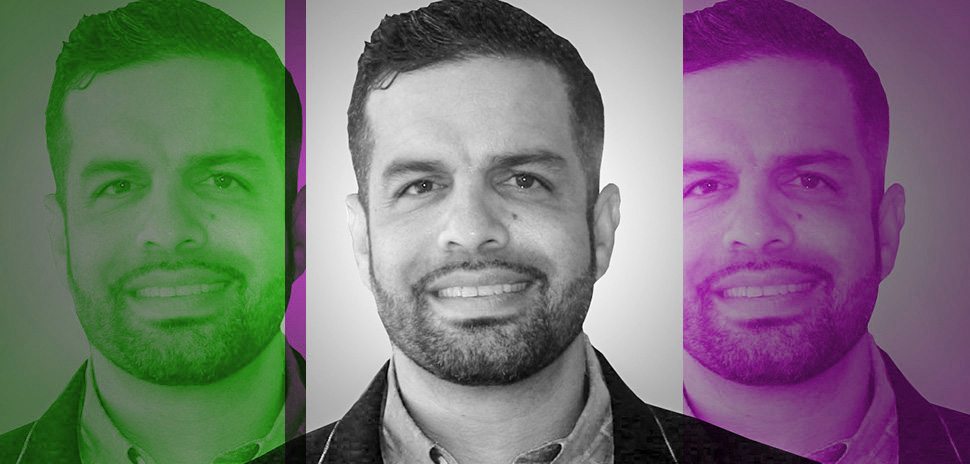 TELEMED CONNECTOR
TELEMED CONNECTOR
Rey Colón
Founder and CEO
MyTelemedicine
Colón and his fast-growth company are offering even more virtual medical solutions since COVID swept the globe. The pandemic is speeding the shift to virtual health, and MyTelemedicine is riding the wave of the future. In May, the firm established a subsidiary brand, Zeally Health, which offers a digital platform for healthcare providers to conduct video visits with patients through MyTelemedicine’s Access a Doctor mobile app. The platform has more than 3 million members nationwide, completing more than 250,000 virtual consultations to date. Doctors upload their patients, who then receive an automated message to set up their accounts and schedule virtual consultations. The company, which was founded in 2015, gives people around the world access to immediate healthcare with round-the-clock access to doctors on-demand via its secure mobile solution, Colón says. In December, the company moved to its new McKinney headquarters, thanks to an innovation fund grant from the city’s EDC. The startup plans to add 40 new high-tech and executive jobs over the next three years, nearly tripling their current staffing. Next up? “Leveraging the latest in AI technology” with a potential rebrand in the works, he hints.
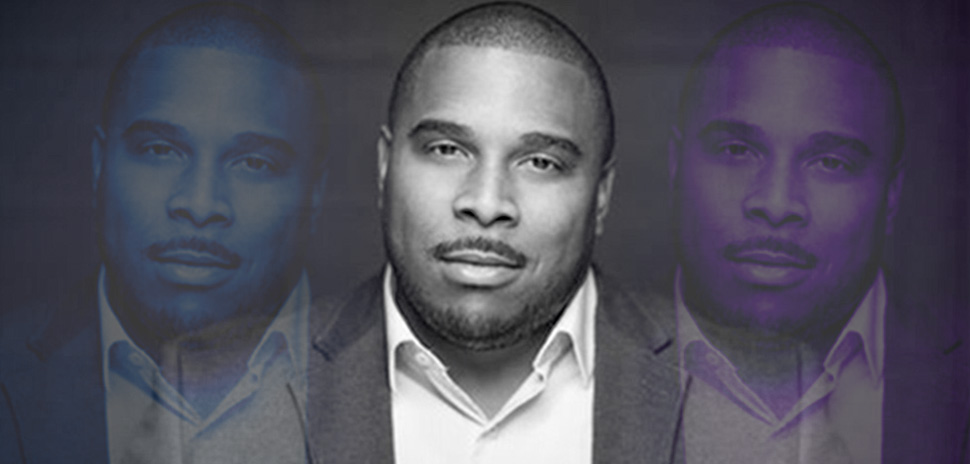 DEAL DIGITIZER
DEAL DIGITIZER
Senecca Miller
CTO
Dottid
Miller and the Dottid team want to “bring true digital transformation” to commercial real estate with their platform and apps. With input from brokers, asset managers, and owners, they created a customizable workflow engine that lets businesses make their own templates for leasing deals (new, renewed, or expanded). While setting a new standard for lease transactions, they don’t want to lose the best of traditional practices: “We understand that CRE is truly a relationship-driven industry. Our goal is not to replace those relationships, but to enhance them by bringing a new level of visibility and efficiency to the process,” Miller says. In the last year, Dottid raised $3.85 million in seed funding, became the first CRE platform to be accepted into the Microsoft Teams app store, and launched an iOS app. In early 2021, they plan to launch an Android version.
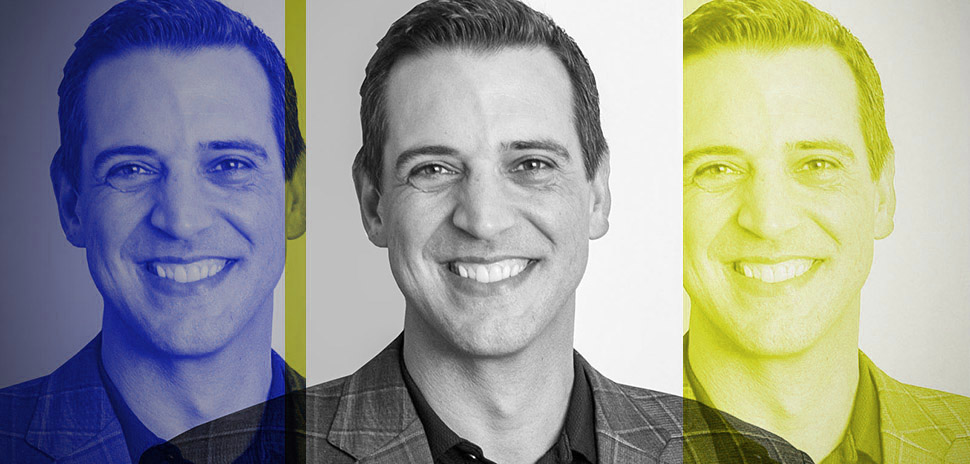 BANKING DISRUPTOR
BANKING DISRUPTOR
Stephen Bohanon
Founder and CSSO
Alkami
Last year, Bohanon predicted that Alkami’s next yearly milestone would be 10 million contracted users and $100 million in revenue. Fast forward and the fast-growing fintech has done it: 2020 brought in nearly 10 million digital users and more than $130 million of annual recurring revenue. Add to that a $140 million funding round that puts Alkami’s total funding upwards of $400 million. Bohanon and CEO Mike Hansen have built an intentional workplace culture of Alkamists in Plano around the idea that business innovation is the focus of the human capacity to create or improve products, solutions, and business models. Since its founding, Alkami has received some of the highest app store ratings in digital banking. Its cloud-based solutions are designed to modernize how clients do business and users do banking.
 VIRTUAL OFFICE PLANNER
VIRTUAL OFFICE PLANNER
Toni Portmann
Co-Founder and CEO
Walkabout Workplace
Long before COVID made WFH the norm for office WORKERS, Portmann’s firm was attracting huge customers like Mitsubishi and UT Dallas. Walkabout Workplace is an expert in “Placeware,” or customized virtual offices and classrooms that give coworkers or students online places to meet and collaborate. The tech is a combination of video or audio conferencing, screensharing, chat, and any related apps. Its floor plans can mimic familiar brick-and-mortar offices and campuses. Portmann believes that a hybrid of virtual and in-person work is the future of office space: “Companies, mindful of the money they save through work-from-home or work-from-anywhere arrangements, will embrace digital real estate so employees can be in the office regardless of where they are in the world,” she says. While remote working and learning is the future—and that future is now—COVID proved that people need to be connected “more than ever,” Portman says. A virtual location encourages community while allowing people to live where they want, which can help reduce carbon footprints. She believes that a next step is for virtual real estate to be brokered, along with CRE, allowing the physical and virtual worlds to converge “in new and exciting ways.”
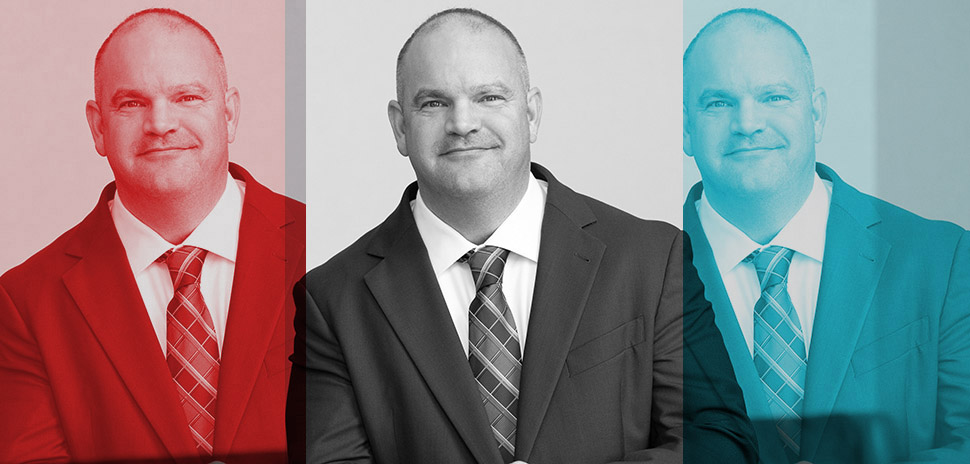 GREEN CHEMIST
GREEN CHEMIST
Bravis Brown
CEO
BPS Technology
Brown and his team of scientists at BPS Technology are improving agricultural production and the environment through a new chemical compound. The water-based additive enhances the effectiveness of fertilizers at lower levels, reducing the impact on soil and groundwater and improving a farmer’s bottom line. With a dozen patents filed in the last 12 months, BPS, which just moved from Southlake to Argyle for more space, also offers solutions for the oil and gas industry.
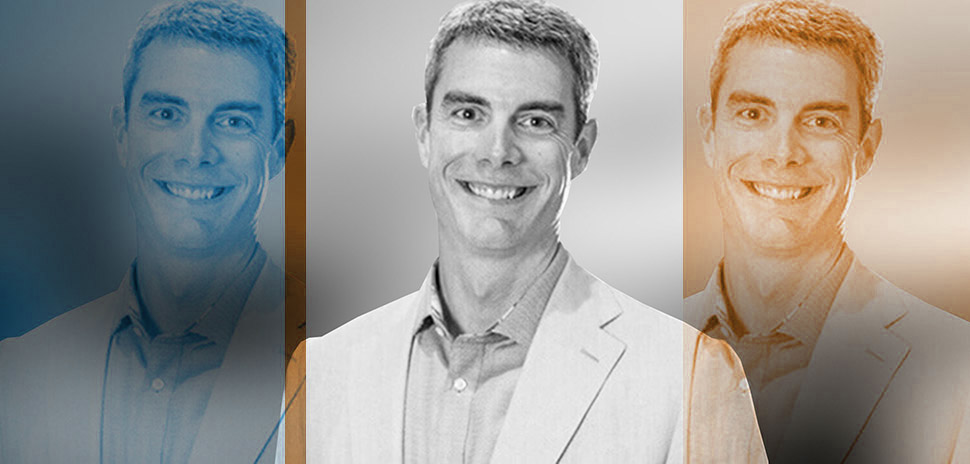 MATCHMAKER
MATCHMAKER
Chris Gardner
CTO
Outmatch
Gardner oversees technology that helps companies hire and develop the best employees. The mission is to match people with purpose: The talent intelligence platform makes people decisions more scalable, predictable, and personal. By putting data and insights in a company’s hands, the world’s most recognized brands—think American Airlines, Toyota, 7-Eleven—can deliver a candidate-driven recruiting experience. This year, it developed a tool to help leaders better navigate a crisis and opened two new data centers to mark its global expansion.
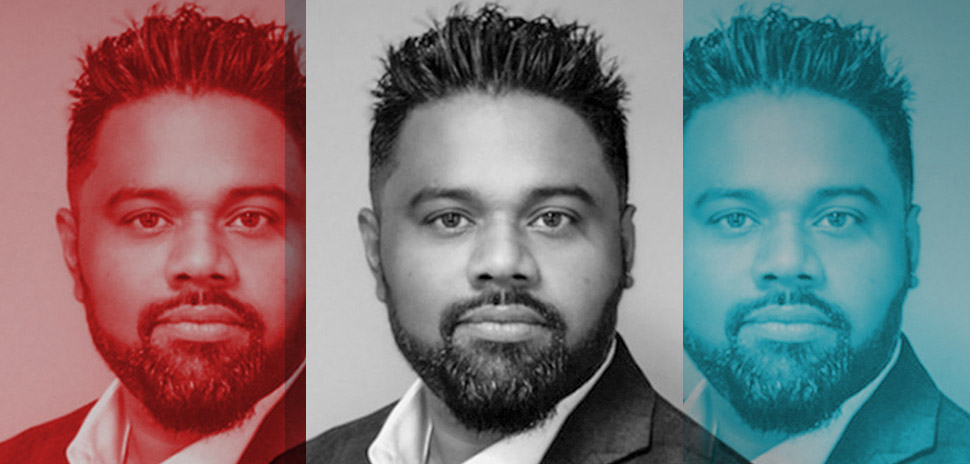 TECH TRANSFORMER
TECH TRANSFORMER
Prasanna Singaraju
Co-Founder and CTO
Qentelli
How do you modify software solutions on the fly to meet changing demands? Qentelli’s solution uses AI-powered frameworks and machine learning to help companies uncover the power of data they hold. “Today, I could give you hundreds of examples of how organizations still work in a siloed fashion and without any feedback mechanism,” Singaraju says. It’s a problem with far-reaching implications, he adds. The company’s six patent-pending frameworks are at the heart of the company’s success, helping clients increase revenue, efficiency, and usable information. There’s a tectonic shift to view everything through the digital lens, “so our products are enabling a digital future,” he says. “We believe Digital Process Automation is the ‘secret sauce’ for a lot of organizations to realize significant improvements in productivity.” Case in point? Empowering one of the world’s largest quick-service restaurants to increase its mobile commerce revenue by 23 percent in one year. The five-year-old Dallas-based startup made lists in recent months as one of the top five fastest-growing tech companies in North Texas and a top 100 fastest-growing private company in the region. As one of Fortune’s “Best Places to Work,” their work-from-home game is next level, offering employees virtual yoga, mental health sessions, and stand-up comedy shows.
ENTERPRISE
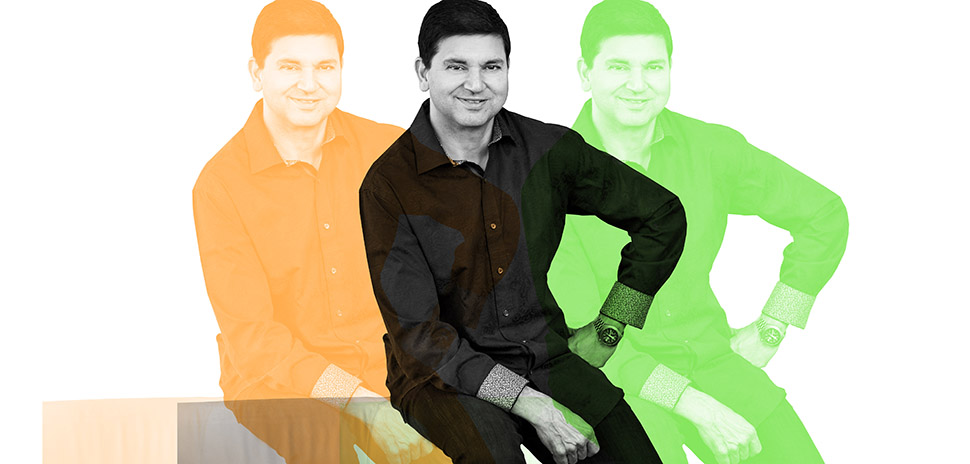 TECH-SAVVY COMMUNITY CHAMPION
TECH-SAVVY COMMUNITY CHAMPION
Sanjiv Yajnik
President, Financial Services
Capital One
Yajnik is well-known throughout Capital One for his tech-savvy and purpose-driven leadership. But his reach goes well beyond the organization. As a champion of innovation, social justice, and socioeconomic mobility, the executive is a standout in the region for his work to create a more vibrant and equitable Dallas. Under his servant-style leadership, the company’s South Central region has developed multiple community programs, services, and products related to economic equity. This year that was especially heightened. “Our current climate of social injustice has struck an incredibly deep chord inside me and our organization,” Yajnik says. “We will all work together to be better within our four walls, the community, and beyond.” What resulted was the Capital One Impact Initiative, which kicked off with a $200 million, five-year commitment to support growth in underserved communities and close gaps in equity and opportunity. Locally, it came to life through a series of grants and partnerships. The pandemic also brought a rise in digital tech—and an opportunity to reimagine the car-buying experience. Car ownership is essential to the American dream, Yajnik believes. With his help, Capital One Financial Services was able to grow into one of the largest non-captive auto lenders in the U.S. “We do great things for people who need it the most,” he says. “By working together, we as a business community have the opportunity to serve as a catalyst for change. We must take the energy of this movement to drive action that will last long beyond our years.”
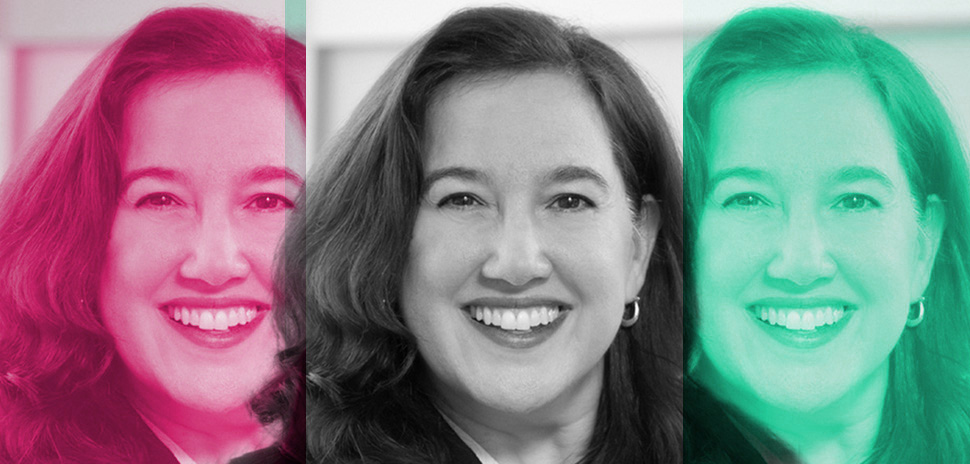 DATA WRANGLER
DATA WRANGLER
Kate Hopkins
Vice President
AT&T
“Imagine a world where no matter where you are you can get coverage, in any kind of emergency,” says Hopkins, who is proud of AT&T’s tech advances to support the first responder community. Recently, her team’s work on in-building data sets helped provide coverage in all ERs in a major city. It’s just one example of how the company is making its vision a reality. The AT&T team also provided the FCC with data that helped it levy a record-breaking $225M fine against robocall perpetrators.
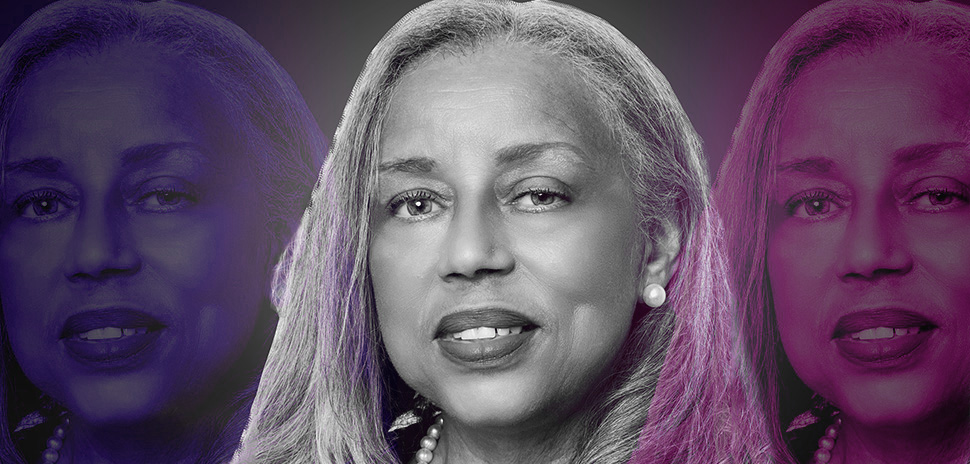 COLLECTIVE FUTURIST
COLLECTIVE FUTURIST
Margo Posey
President and CEO
Dallas/Fort Worth Minority Supplier Development Council
Working for economic opportunity and social justice has been part of the DNA of the council for 46 years, says Posey. A spotlight on these areas has allowed the group to be “even more proactive as an advocate for minority business inclusion as one of the single-most effective drivers to strengthen North Texas, transform our school systems, and grow the economy,” she says. “We realize this is the ‘New NOW.'”
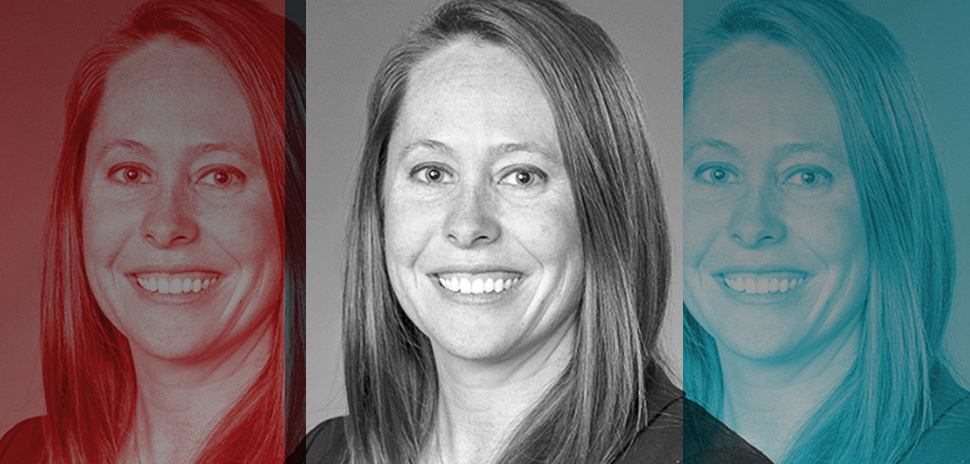 STEM STAR
STEM STAR
STEM STAR
Jennifer Benson
Chief Engineer of Advanced Optics
Raytheon Intelligence & Space
As product area chief engineer at Raytheon Intelligence & Space in McKinney, Benson is leading a distributed team spanning D.C. to California to develop lasers that can carry secure messages for satellites and aircraft. She’s also working on ways to overcome atmospheric distortion of digital signals. “The improved performance also comes in lighter, smaller packages, enabling better communications for smaller volumes,” Benson says. The goal is creating a system that works in rough atmospheric conditions 100 times as fast as the best residential Ethernet. Why? To help the U.S. military and other satellite providers fulfill their missions. It’s critical for national security that we continue making investments in research and development to create the tech that will give our warfighters an advantage in the future, Benson says. COVID-19 has posed challenges, but her team persevered. “From a resiliency perspective, it helps to remind ourselves that our customer is the U.S. military,” she says. “They are not stopping because of the pandemic, and we have to continue working to support them in their service to our country.” Because the company’s work supports U.S. troops, its operations were deemed essential to national security. Earlier this year and not long after a promotion to her current position, she received the Raytheon CEO Award, the company’s top honor.
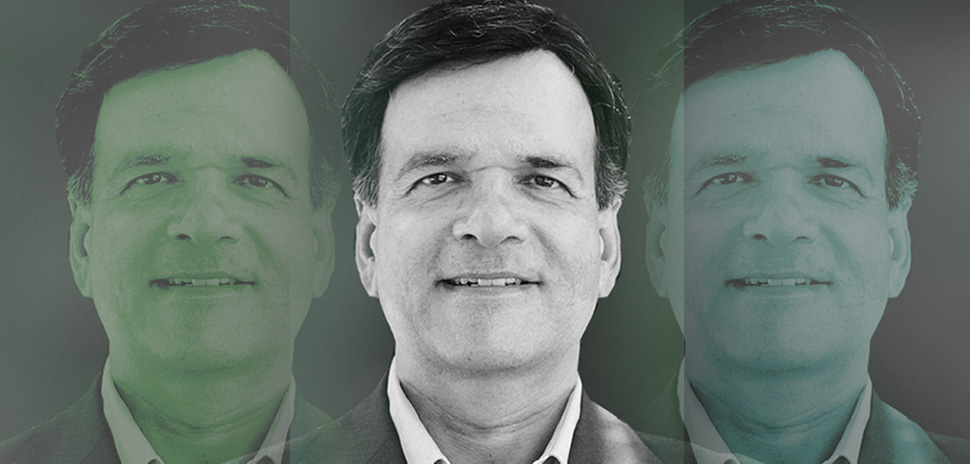 INSIGHT OPTIMIZER
INSIGHT OPTIMIZER
Ashim Bose
Chief Data Scientist and AI Officer
Omnitracs
Digital transformation is rapidly reshaping the transportation industry, says Bose, who has a Ph.D. in artificial intelligence. The Omnitracs exec took the wheel of the company’s data, AI, and machine learning operations last year to help customers with insight-driven solutions by harnessing data. The entrepreneurial analytics and AI technologist is building a cloud-based foundation to converge diverse data across silos at Omnitracs. Bose began his career working on the Hubble Space Telescope rescue mission for NASA, where he applied AI to optimize the planning and scheduling of space observations.
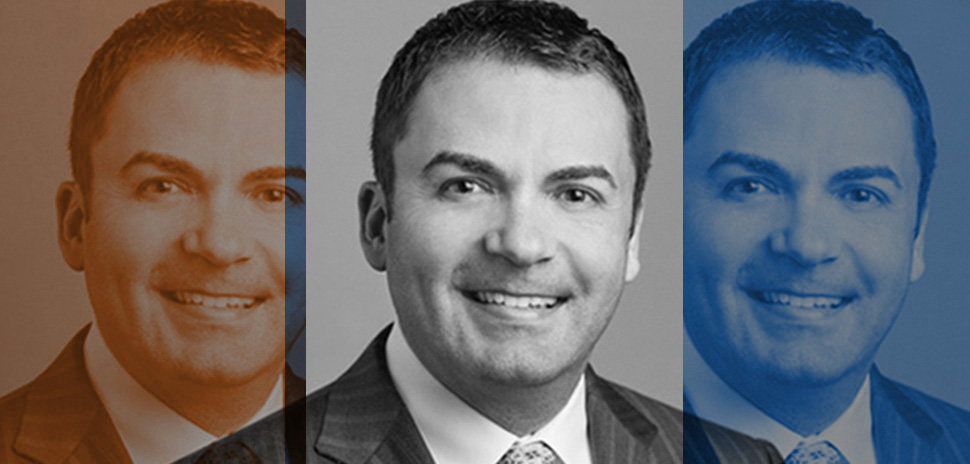 CARE COMMUNITY BUILDER
CARE COMMUNITY BUILDER
Steve Miff
CEO and President
Parkland Center for Clinical Innovation
When COVID-19 began impacting North Texas in March, the data science and clinical experts at PCCI were already hard at work on ways to improve health in the underserved areas of Dallas. The team quickly built, tested, and deployed several patent-pending analytical models using machine learning and geomapping to visualize the progression of cases across the area. “Challenging times often accelerate innovation and collaboration,” Miff says. With the help of their models, PCCI staffers worked with Dallas area governments, schools, and community-based organizations to get help to the most vulnerable. Whole-person wellness is the best way to achieve good health outcomes in the middle of a pandemic, Miff says. PCCI also developed a Vulnerability Index that includes demographic information, medical comorbidities, social determinants of health, and mobility data. Organizations can use the model to help determine how resources could be deployed. The team learned so much in the process that they published a book, “Building Communities of Care,” to help other communities manage and target help to underserved populations. People with unmet needs are more likely to have poor health outcomes, as COVID-19 has demonstrated. “Although we’ve been working harder than ever, our work feels more relevant and meaningful than ever before,” Miff says.
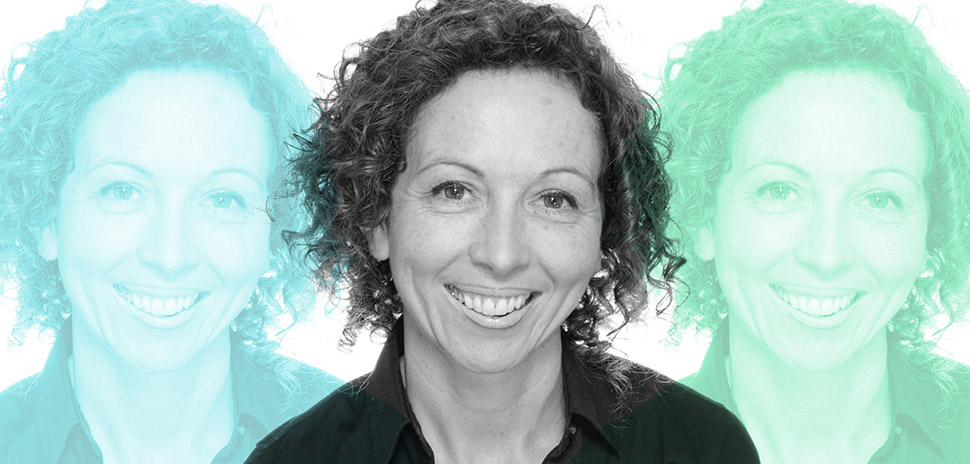 FEMALE FOCUSER
FEMALE FOCUSER
Ciara Dilley
VP of Transformation and Innovation
Frito-Lay
At Plano-based Frito-Lay North America, DILLEY is leaving a legacy of leveling the playing field for female entrepreneurs. With her more than two decades of industry experience, Dilley leads a diverse portfolio of Transform Brands. But her job also involves heading initiatives that push Frito-Lay beyond a mega snack company. That’s led to the executive harboring her own passion for championing female equality within the organization and beyond. She’s now known for “waving the flag” of Frito-Lay’s support of female entrepreneurs. Two programs were born, each designed to make a difference for female founders: WomanMade, a PepsiCo initiative that advances those in the food & beverage industry, and Stacy’s Rise Project, a grant and mentorship program that bridges the funding gap (women receive some 2 percent of VC funding). In 2020, Dilley and her team decided to kick it up a notch given the economic fallout from COVID-19. The Stacy’s Rise Project, which Dilley helms, supported 15 female entrepreneurs across all industries with $150,000 in grants, professional services, and ad space. To Dilley, it was all about putting women front and center. “This is the thing that gets me up in the morning,” she says. “This is the thing that I talk about every single day. This is the thing that makes me proud to work for a big corporation.”
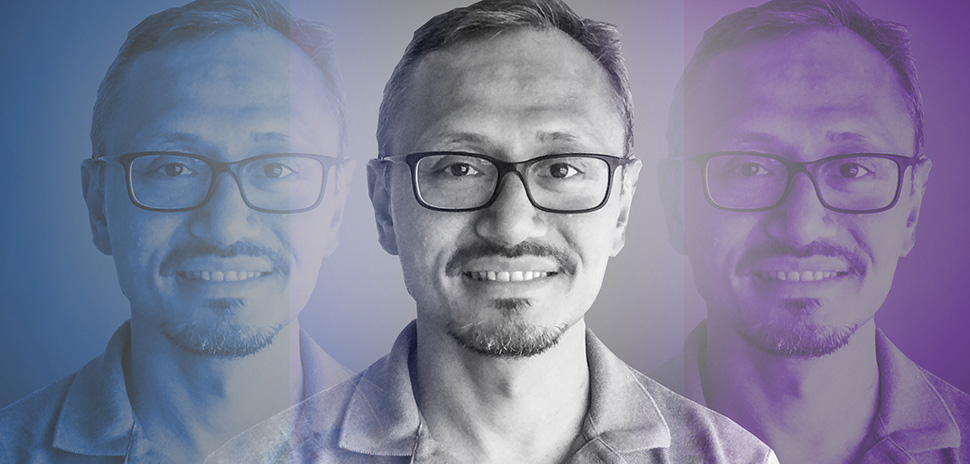 FINTECH TRANSFORMER
FINTECH TRANSFORMER
Jeremy Hanson
Technology Fellow Vice President, Global Head of Agent Engineering
Marcus by Goldman Sachs
In little more than two decades, Hanson evolved from a newly minted grad of Carnegie Mellon to part of the engineering leadership team building Goldman Sachs’ digital banking platform, Marcus. Hanson started by leading a team of three on Marcus in 2017. Nearly four years later, he’s running the 100-plus Consumer Engineering team in Richardson that’s helping to change the face of personal banking by continuing to grow the Marcus franchise—including the 2021 launch of Marcus checking accounts. The project has been touted by experts as a blueprint for the future of digital banking.
 OPENRAN FRONTRUNNER
OPENRAN FRONTRUNNER
Pardeep Kohli
President and CEO
Mavenir
Voted the most powerful person in wireless for 2020 by Fierce Wireless, Kohli and his Richardson-based company provide cloud-native network software for the wireless industry. In November, they were selected by DISH Network to deliver 5G nationwide. The company aims to bring multiple applications at a lower cost through virtualization. Mavenir’s next-gen flexible Radio Access Network, or RAN, has also drawn the attention of Intel.
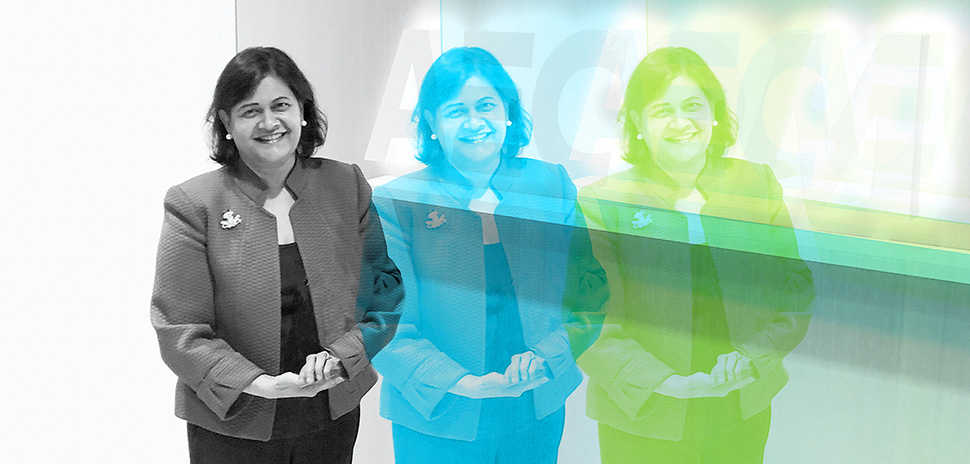 INFRA INNOVATOR
INFRA INNOVATOR
Dev Rastogi
Vice President
AECOM
Rastogi works with forward-thinking ideas, such as the Texas Hyperloop and Automated Bus Consortium—two big infrastructure game changers that could redefine transportation. With 36 years of experience spearheading complex transportation projects, she also oversees AECOM’s Dallas Cities program, addressing issues such as climate adaptation and sustainable economic development.
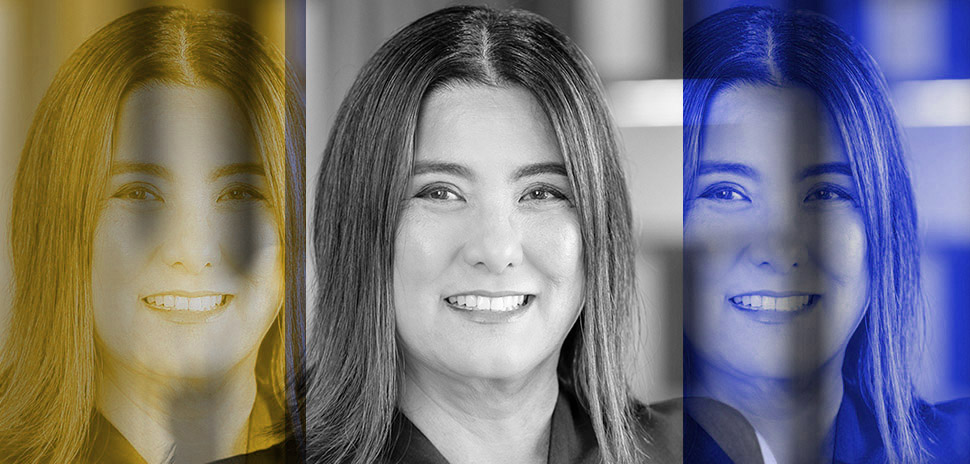
TECH GURU
Nancy Flores
EVP, CIO, and CTO
McKesson
A veteran of the healthcare industry, Flores is passionate about making a difference for patients, caregivers, and professionals. At the start of 2020, she began a multi-faceted position at Irving-based McKesson as EVP, CIO, and CTO. It was her job to oversee technology initiatives—software, infrastructure, application development, cybersecurity—for the provider of wholesale medical supplies, pharmaceutical distribution, and healthcare tech. But six weeks into a new job and city, the pandemic hit. Flores and her tech teams had to reprioritize overnight, addressing systems and infrastructure in new ways to rapidly tackle the rise in PPE demand and dynamic supply chain activity. Now she plays a big part in McKesson’s partnership with the CDC to support Operation Warp Speed as a distributor of COVID-19 vaccines and supplies. Tech is crucial to that. “For years, the healthcare industry has talked about shifting into more digital channels to optimize the industry,” she says. “I think that’s the silver lining: This is going to change and drive digital and an inherent level of efficiency. That’s going to be a good thing after COVID.”
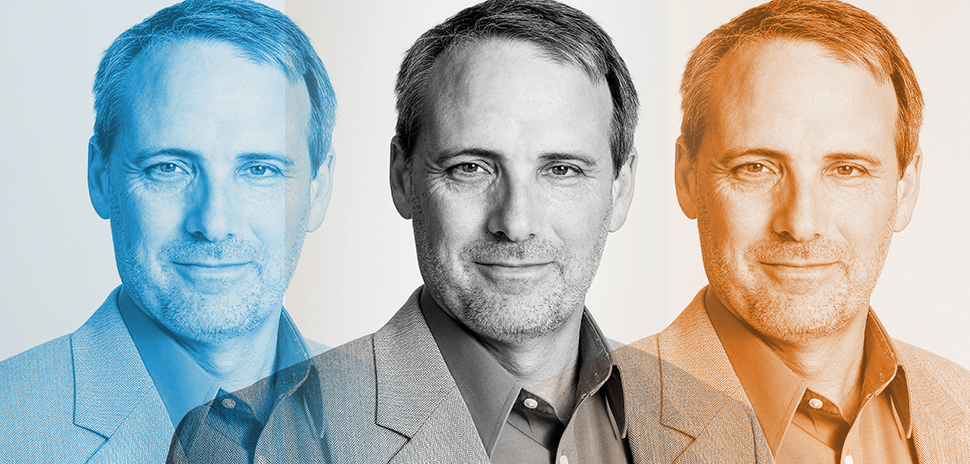 TECHNOLOGY TITAN
TECHNOLOGY TITAN
James Klein
President, Infrastructure and Defense Products
Qorvo
Klein helms Qorvo’s Richardson-based IDP business arm, which, with its three North Texas facilities, manufactures some 80 million semiconductors a week. The manufacturer of advanced semiconductors and radio-frequency solutions landed a $75 million contract this year to create a state-of-the-art microelectronics packaging facility in Richardson for the United States Navy. The results should advance semiconductor packaging capabilities for the Department of Defense and commercial customers—and enhance the country’s edge in technology and national security.
INVENTION
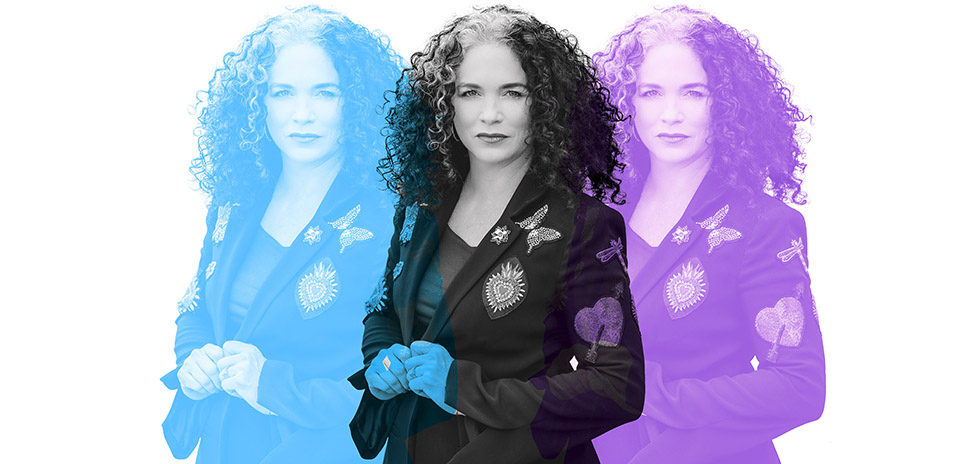 TOUCHLESS TECHNOLOGIST
TOUCHLESS TECHNOLOGIST
Vanessa Ogle
Founder and CEO
Enseo
Few industries were harder hit by the pandemic than hospitality. Steamrolled by stay-at-home orders, Ogle and her “rock star in-house engineering team” had to iterate quickly—creating a whole new suite of touchless tech products “that make it safe to travel again.” They developed VERA, a virtual front desk agent; enseoCONNECT, which allows guests to control TVs, lights, and thermostats from their phones; and CheckPoint, a touchless temperature scanning device. “In the past, the hotel experience was ‘high-touch,’ but now guests want the flexibility to choose how much contact they want—or ‘my touch,'” Ogle says. Enseo’s contactless technologies let guests use their own devices and reduce unwanted contact with surfaces or people. The company also deployed communication systems like MadeSafe, CleanRoom, and LobbyView, so guests could assess cleaning practices. If guests know how and when rooms and common areas are cleaned, they’re more likely to feel safe and develop brand loyalty in this challenging season, she says. Enseo also is launching an IoT-controlled UV-C clean light that can sanitize a hotel room, classroom, or other space. This year, the Latina-led company split into three different divisions, with Enseo Holdings at the helm, as the firm looks to expand its touchless tech into new markets like senior living and hospitals.
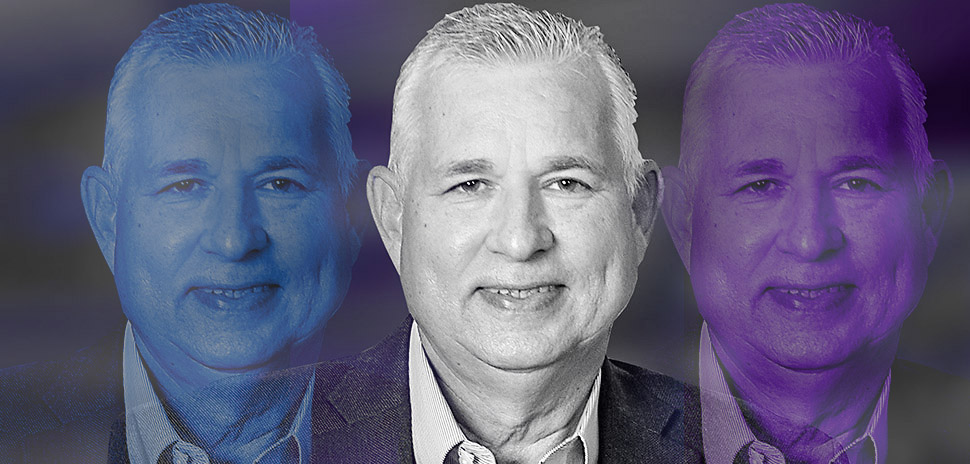 AERIAL FIREFIGHTER
AERIAL FIREFIGHTER
Victor Trotter
President and CTO
Trotter Controls
Trotter and his team at this Haltom City-based company develop on-board technology that’s been called the “gold standard” in aerial firefighting. In 2020, they received a patent and FAA approval for the world’s first all-electric fire gate system. “Think bomb doors,” says Trotter. The company’s FRDS GEN III was selected as a fire gate for Air Tractor (based in Olney, 100 miles northwest of Fort Worth) and its latest version of the AT802F firefighting plane. The new system replaces the hard-to-maintain hydraulics and pumps with a simpler electric motor that’s 40 percent lighter. That means the plane can carry more liquid fire retardant. Plus, the design automatically compensates when the tank is not level to deliver consistent coverage on the ground. Trotter calls the new technology groundbreaking, saying it represents disruptive improvements. It’s not just making controls for single-engine prop planes. Earlier in 2020, the company developed an all-electric fire gate for the Blackhawk helicopter and created a new tank design and controls for Sacramento-based Helimax’s CH47 heavy helicopter. Next, it plans to deploy an all-electric gate for agricultural aircraft.
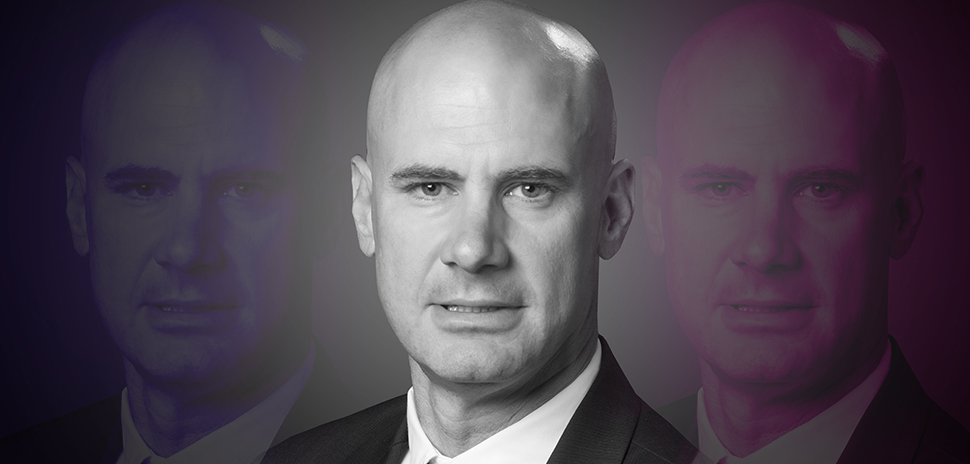
SENSOR SCIENTIST
Guido Verbeck
Professor
UNT Chemistry and Biochemistry
Verbeck and his group at UNT developed a chemical sensor, then teamed with Dallas-based Worlds Inc. to turn it into a rapid COVID breathalyzer test. By detecting unique volatile organic compounds, the invention “fingerprints” the virus. It was initially developed to look for chemical variants in the air, as in a fire, drugs in a car, or mass graves, Verbeck says. Beyond COVID, the device has potential groundbreaking applications of “sniffing out” other dangerous diseases like cancers and diabetes. “Creating a device that can look for not only respiratory illnesses, but also early-stage cancer markers and metabolic disorders in real time could really change the diagnosis field,” he says. “Because of this large application set, it was important to use AI and machine learning. This is why Worlds is such a great partner.” Verbeck, who earned his Ph.D. in chemistry at Texas A&M, is an expert in mass spectrometry focused on instrument design and development. What’s next for the professor? He’s developing a new device for cancer treatment and one for increasing organ viability for transplants while continuing to pursue a host of new metabolic disease markers for his chemical sensor.
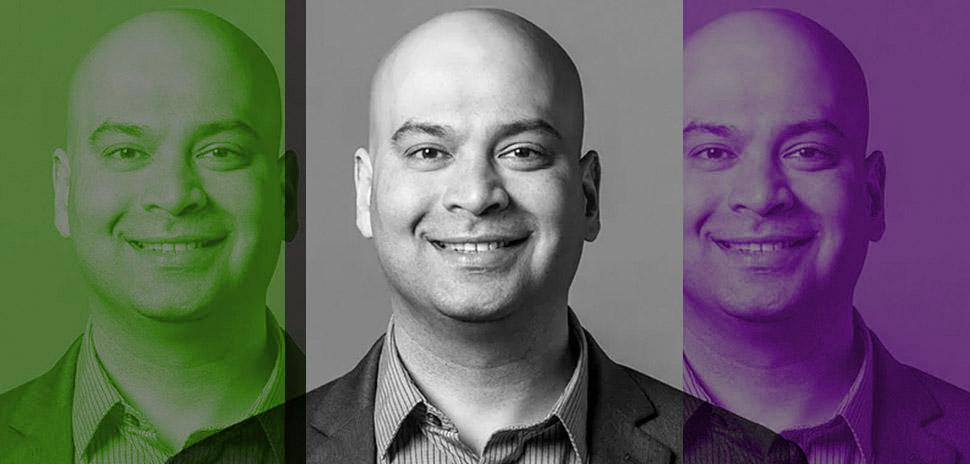
VOICE AUTHENTICATOR
Milind Borkar
Co-Founder and CEO
Illuma Labs
Coming soon to a credit union near you, Illuma Labs’ fintech offers real-time voice authentication powered by artificial intelligence and machine learning. “Gone are the days of long question-and-answer sessions to prove your identity every time you call your financial institution. Our innovative approach helps our clients enhance the user experience they offer to their end customers, while simultaneously elevating security and improving operational efficiency,” Borkar says. Founded in 2016 by Borkar and Chief Technology Officer Jeremy Whittington, Plano-based Illuma Labs developed its Illuma Shield platform with $2 million in R&D contracts from the U.S. Department of Homeland Security. As COVID-19 increased the volume of calls to customer service centers for financial institutions, Illuma Shield helped credit unions using the platform to reduce call duration and hold times, Borkar says. In May, Illuma Labs received an undisclosed amount of seed funding based on its participation in VentureTech for the best new fintech applications.
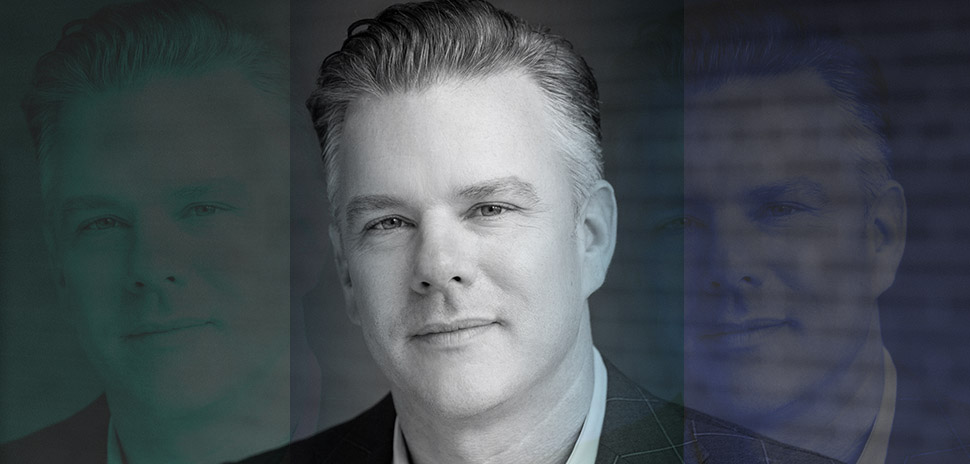
LOAD LIGHTENER
Roger Raley
President
Alpine Advanced Materials
Raley leads a team of engineers developing HX5: a lighter, faster-to-produce alternative to aluminum for aviation, defense, space, and more. In 2020, they tested the patented material in space, underwater, the desert, and extreme temperatures. Reducing weight means less fuel, a smaller carbon footprint, and lowered operating costs, making air and space travel more possible and affordable. The company also sees other applications, including marine and industrial parts, firearms, and bicycles. “With HX5, we can make traditionally aluminum parts and components at half the weight, and those parts can be engineered more easily and precisely,” Raley says. In response to the devastating impact of COVID-19 on travel, the company has been looking to partner with commercial airlines to help lower their costs for future air travel.
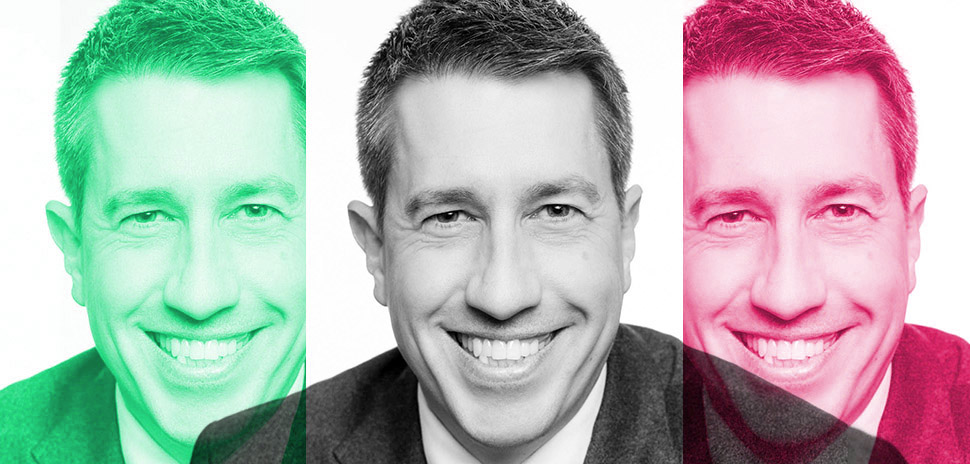
DETOX DEVELOPER
Daniel Powell
CEO
Spark Biomedical
Powell and his team have developed two products to help fight the nation’s opioid epidemic, which has worsened during COVID-19. The Sparrow Therapy System is a wearable neurostimulation device for drug-free opioid withdrawal relief for adults. Another device is in clinical trials to help the youngest victims with Neonatal Opioid Withdrawal Syndrome. In the last year, the company conducted adult clinical trials with “great results,” Powell says. “Although we’re still waiting for FDA clearance, we have high confidence in our solution; especially when we hear comments from our clinical trial participants saying, ‘Easiest detox ever.'” After the opioid withdrawal tool is approved, the firm will focus on the benefits of the neurostimulation device to help with long-term addiction recovery. A large clinical trial will soon be in the works. “One of the biggest challenges for those recovering from long-term opioid use is the changes to the brain’s function that make it more difficult to handle stressors,” Powell says. “We believe our system can help the brain return to a state more like pre-opioid use and give patients the tools to stay sober in the long term.”
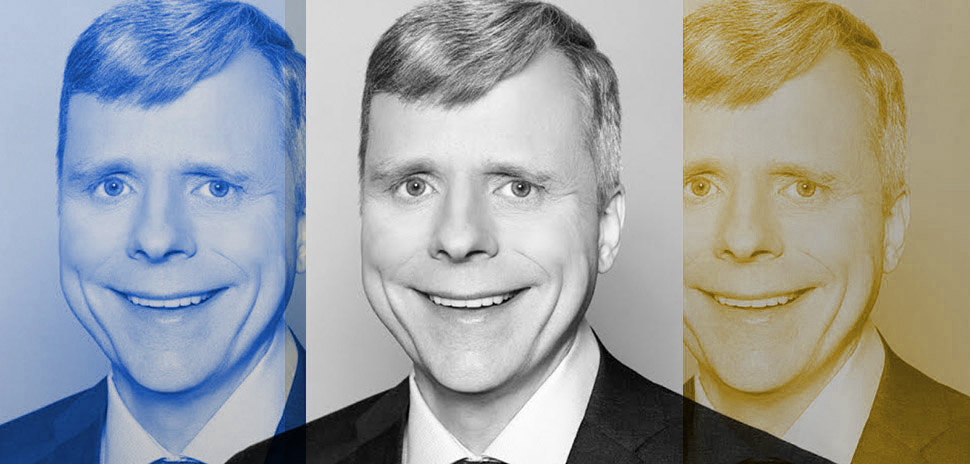 ALGORITHM INVENTOR
ALGORITHM INVENTOR
Leemon Baird
Co-Founder and Chief Scientist
Hedera Hashgraph
A year ago, Hedera Hashgraph put out a virtual welcome mat, inviting the public to create accounts or build decentralized applications on its main network. Baird and his team have since accelerated the mission to build a new digital future for all. Based in Richardson, the next-gen alternative distributed ledger startup is working to be a more secure alternative to blockchain. The platform is designed to provide faster transactions and greater capacity to scale. Think of it as “the trust layer of the internet,” Baird says. Hedera is governed by a council of some of the world’s largest organizations to ensure the stability and reliability of its network protocols and operations. Baird, a serial entrepreneur with a Ph.D. in computer science, has multiple patents and publications in peer-reviewed journals. and conferences in computer security, machine learning, and mathematics.
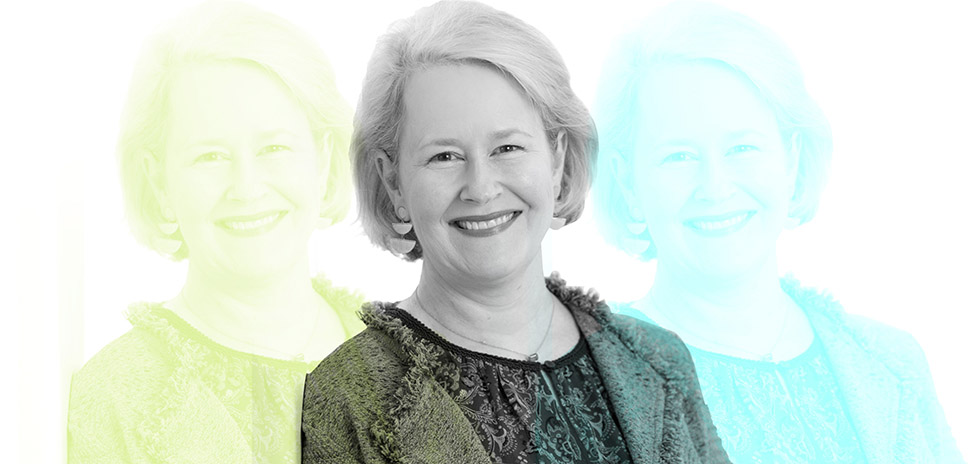 BIOTECH BOOSTER
BIOTECH BOOSTER
Claire Aldridge
AVP of Commercialization and Business Development
UT Southwestern
Aldridge leads efforts to make Dallas a biotech hub. By helping UTSW faculty develop “the entrepreneurial mindset,” she and her team hope to turn scientific discoveries into real-world solutions. Case in point: Her group helped launch Taysha Gene Therapies. “We’re establishing closer relationships with potential commercial partners and keeping them engaged and aware of our pipeline of innovations,” she says. In the year of COVID, she’s helped highlight UTSW research on therapies like antibody plasma, remdesivir, and the anti-IL-6 inhibitors— as well as ongoing studies from the Lyda Hill Department of Bioinformatics that are assisting public health officials in a proactive approach to the virus. UTSW researchers are also leading the DFW Prevalence Study, “which is seeking to identify why certain populations and communities are harder hit.” Next up, the UTSW Office for Technology Development, which includes her team, will relocate to Pegasus Park to encourage collaboration among scientists, businesses, and nonprofits. Aldridge, who also serves as a scientific advisor for Pegasus’ Biotech Hub, says the move will increase the likelihood of meaningful collisions that spark reactions.
EDUCATION
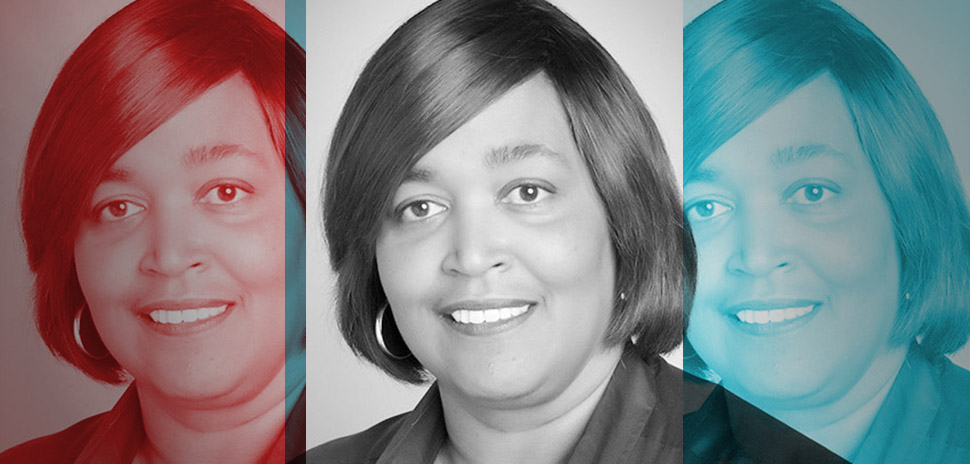
GAP CLOSER
Reo D. Pruiett
Senior Director of Programs
Educate Texas at Communities Foundation of Texas
Despite the global pandemic, Pruiett and her organization continued to help students in underserved areas make gains in STEM. Through a partnership with Texas Instruments Foundation, they saw students in Lancaster ISD increase Algebra 1 proficiency by 51 percent compared to 2012. They also saw African American students in LISD start to close the achievement gap in math. As COVID highlighted the digital divide in low-income urban and rural areas in Texas, the nonprofit supported efforts for increased internet connectivity for communities that lack digital resources. It also launched the Texas Learning Exchange to help educators deliver effective instruction online, in person, or in a hybrid system. A thriving workforce brings economic security, Pruiett says, and the organization aims to increase the number of degrees and certificates earned by Texas students in the future. In the wake of COVID-related shutdowns. She says CFT also helped create a new funder collaborative called North Texas Cares, which awarded over $40 million in grants to 630 North Texas nonprofits.
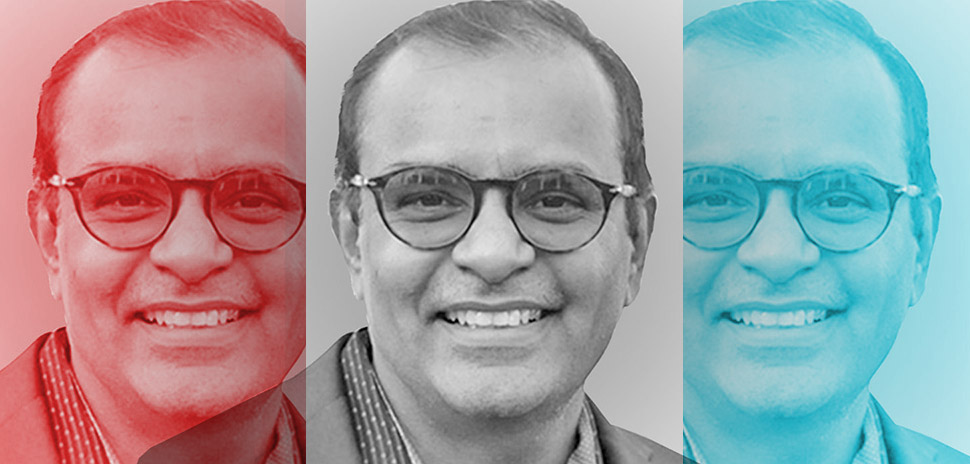 CREDENTIAL CONNECTOR
CREDENTIAL CONNECTOR
Manoj Kutty
Founder and CEO
GreenLight Credentials
Kutty is on a mission to change the education application process with GreenLight, a platform that connects students, academic institutions, and businesses by providing real-time access to lifelong learning achievements and records. Kutty compares the technology to a verified LinkedIn: From transcripts to recommendation letters, records are written into a student’s “electronic locker” by the institution that awarded the credentials. It’s an economic mobility platform of the future—no in-person visits or tedious, expensive processes required. Today, more than 50,000 Texas students have used GreenLight. Currently, the team is replicating its model to scale nationwide for the American Council of Education.
 BLOCKCHAIN BOOSTER
BLOCKCHAIN BOOSTER
Lee Bratcher
President
Texas Blockchain Council
Bratcher, who teaches political science and directs the master’s program in international studies at Dallas Baptist University, wants to put the Lone Star State on the forefront of blockchain technology as the new president of the Texas Blockchain Council. Launched in early 2020, the council aims to make Texas “the jurisdiction of choice for blockchain innovation,” he says. To do that, members are advocating for blockchain-centric public policy and educating others about the benefits of distributed ledger technology. Member companies and partners include Hedera Hashgraph, Hyland, Trammell Venture Partners, and DBU.
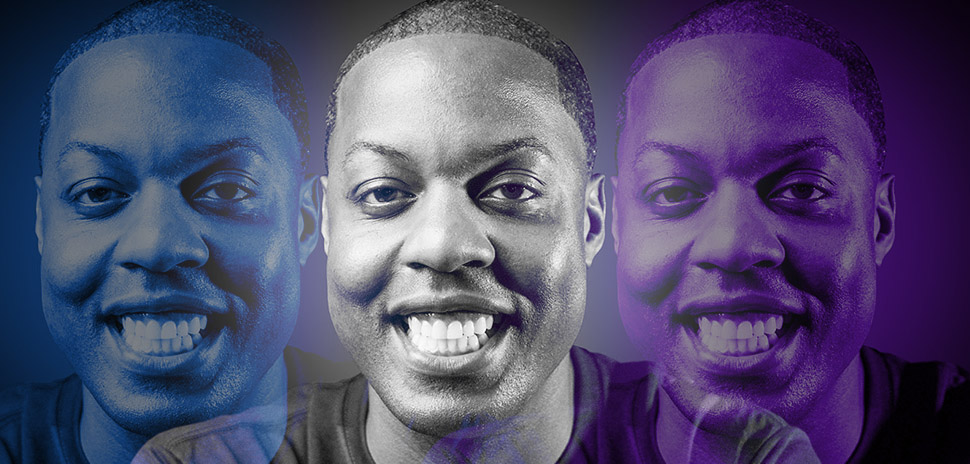
LEARN-AND-EARN GAMER
Danny Martin
Founder
Esposure
In 2015, Martin co-founded Geekletes, a DeSoto esports development company that helped gamers go pro. But when COVID hit, the CEO saw an opportunity to transform his business into a comprehensive online hub. What emerged is Esposure, an accredited STEM.org platform for gamers, students, and entrepreneurs to learn about the business of esports. Esposure sits at the intersection of esports and community: Its “learn-and-earn” model includes master classes, enrichment programs, and resources for all aspects of esports education. But it’s also a communal way for gamers to connect—and a rite of passage for a growing user base.
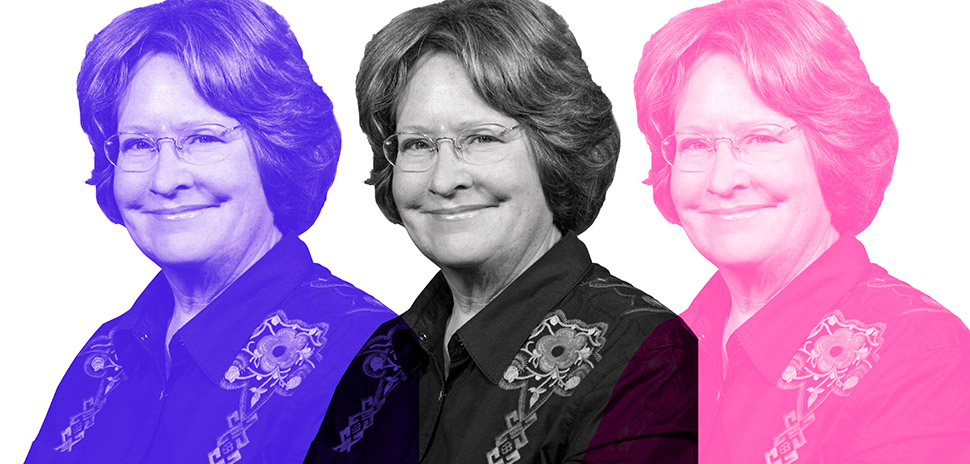
VIRTUAL HUMAN CREATOR
Marjorie Zielke
Director
UT Dallas’ Center for Simulation and Synthetic Humans
What if students learning at home had a virtual teacher who could answer questions, give help, and find different ways to instruct based on individual needs? That’s what Zielke and her award-winning team at UTD are working to achieve. “This work was prescient and pre-pandemic,” she says. “My goal has always been to create a true virtual human hologram that can interact naturally with students and faculty to address the social and learning issues that currently exist in virtual learning systems.” Zielke believes the work they’re doing—along with the clear issues that have emerged with COVID-19—will create a new type of hybrid learning worldwide. This year, her team received two National Science Foundation grants to support their research. Working with the Richardson Independent School District and UT Southwestern on the projects, Zielke is exploring “critical aspects of virtual education” that have become more evident this year. “Research facets support social factors that have become crystalized,” she says. “We’re working on the development of both virtual teachers to extend the capability of human teachers and virtual students to explore social learning with peers.”
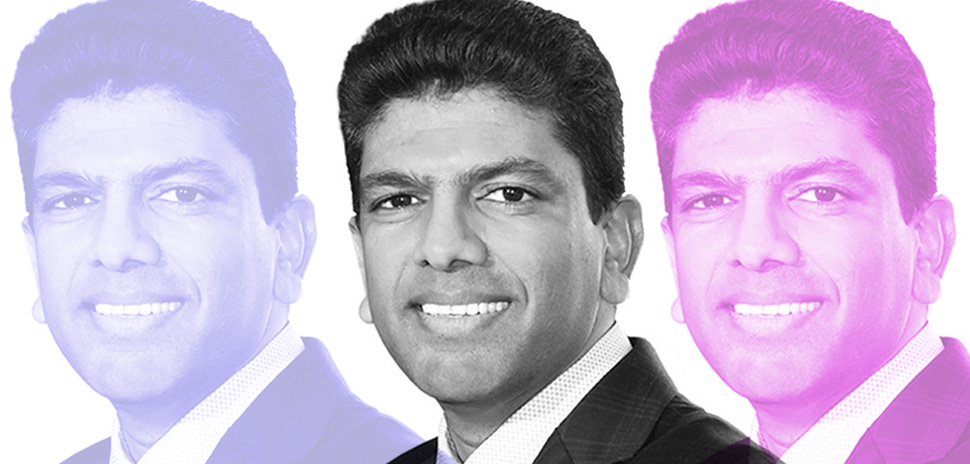
EXAM PREPPER
Chandra S. Pemmasani
Founder and CEO
UWorld
Born out of his own efforts to study for high-stakes med school entrance exams, Dr. Chandra S. Pemmasani created “the gold standard” in the healthcare education industry. Now, under the gun of COVID-19, the 2020 EY finalist and his team at UWorld are applying their knack for teaching difficult subjects to distance learning in public schools by “reinventing the ways students focus, engage, and learn.”

BRAIN RESEARCHER
Sid O’Bryant
Professor and Executive Director, Institute for Translational Research
UNTHSC
In September, O’Bryant and his team won the largest grant ever in the history of UNTHSC—$45 million from the National Institute on Aging to study the disproportionate impact of Alzheimer’s disease on Hispanic Americans. The grant allowed them to build one of the most advanced research brain imaging facilities in the U.S. Now they’re adding African Americans—also disproportionately affected by AD—to the study. The goal? Better treatments for all.
SOCIAL INNOVATION
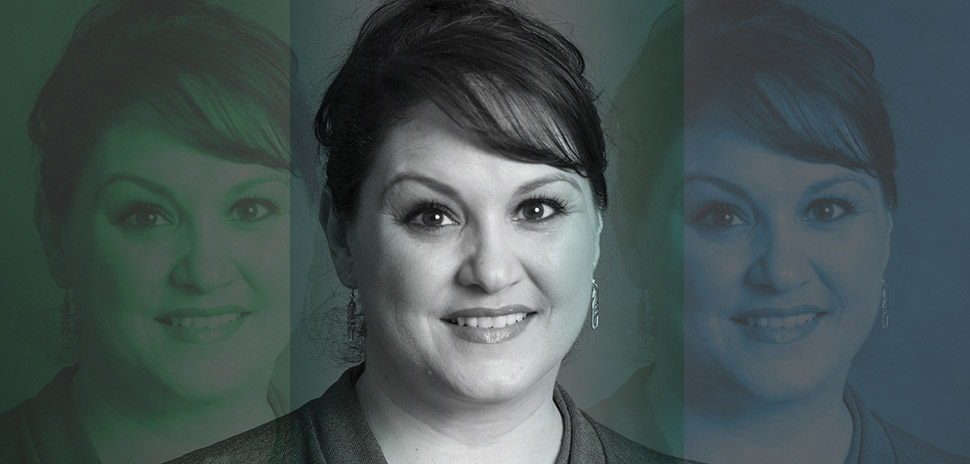
PLANET ADVOCATE
Rania Batrice
Senior Advisor and Interim Executive Director
March for Science
In the pandemic, Dallas-based March for Science set out to bring together “the world’s largest science advocate community” for its global event. They pulled it off in a new virtual format, with a focus on women on the front lines, youth engagement, and more. “We’re all citizens of this planet, and coming together in community, even virtually during this time, is a key part of our work,” Batrice says. Up next, MFS is launching a Political Action Committee.
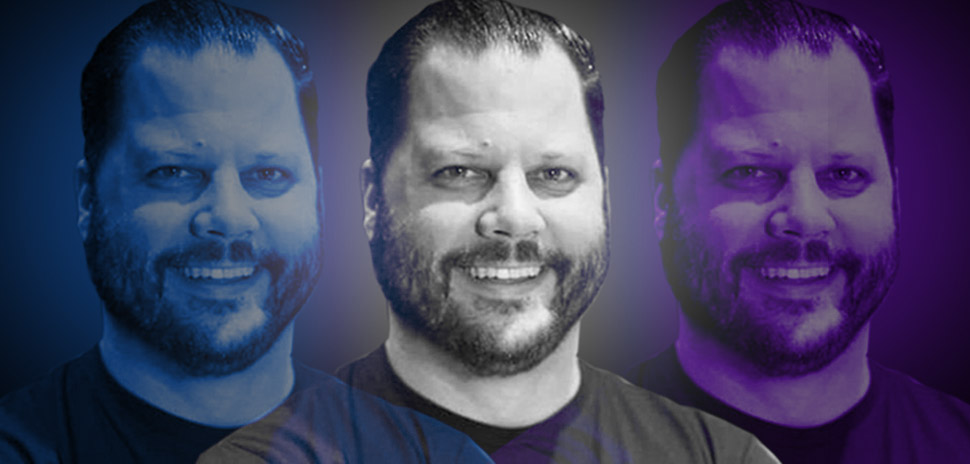 MOMENTUM BUILDER
MOMENTUM BUILDER
Chad Houser
CEO
Cafe Momentum
Cafe Momentum’s mission to transform the lives of at-risk youth caught up in the criminal justice system has grown dramatically in 2020 with the launch of the Momentum Advisory Collective (M.A.C.) to take its nonprofit restaurant model nationwide. With a goal to open restaurants and community service centers in 10 markets over five years, the program aims to decrease the number of youth lost to the cycle of incarceration. Shifting the model for juvenile justice in the U.S. could save between $8 to $21 billion per year, Houser says.
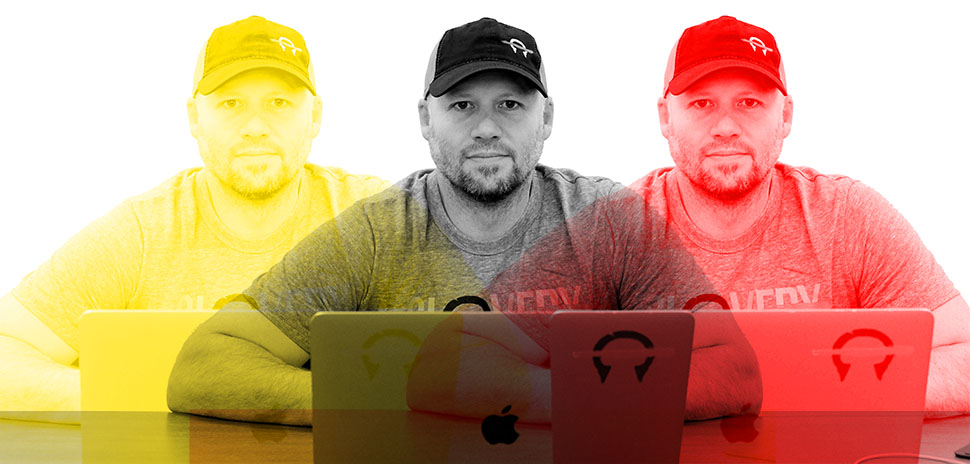
EVIL CRUSHER
Jeremy Mahugh
Co-Founder and SVP
DeliverFund
Mahugh lives by DeliverFund’s unofficial motto: “Our business is crushing evil … and business is good!” The Dallas-based nonprofit, which is run by a distributed team of former CIA, Special Ops, and law enforcement personnel, uses open-source intelligence and proprietary software to analyze the activity of human traffickers in the U.S. and help law enforcement take them down. “It’s not ‘Minority Report’ yet,” Mahugh says, referring to the movie’s Precogs and its predictive analytics. “But it’s getting closer.” Mobile technology has caused trafficking to skyrocket. DeliverFund has turned the tables, using that same tech to hunt the traffickers using it. “DeliverFund’s whole goal is to create a Hobson’s choice for the trafficker: they can continue to use internet technologies to conduct business and get caught, or they can stop. Either way, the good guys win,” Mahugh says. The former Navy SEAL signed the nonprofit’s lease at the old offices of Backpage, one of the largest marketplaces for buying and selling sex before it was busted in 2018. DeliverFund even assisted in taking down traffickers using it. Moving to the space was symbolic, bringing “light to darkness,” Mahugh says. What’s next? Helping his org establish the International Human Trafficking Analysis Center (IHTAC). “Think of it as a centralized brain for all things related to human trafficking,” he says. It’s something law enforcement has wanted for years and will be a huge weapon in the fight. Mahugh expects it to “significantly reduce human trafficking as we know it. The IHTAC will be an inflection point in history—history that will be made right here in Dallas.”

WEB WEAVER
Sheryle Gillihan
CEO
CauseLabs
Gillihan and CauseLabs provide websites and apps, mostly for small companies, nonprofits, education, and government entities. They also champion local entrepreneurship, and in November launched a conference—Impact Fort Worth—to feature game-changing leaders and ideas, including Symbology’s Marissa Heyl, Feel the Color’s Jakayla Dixon, and Jeff Williams of The Taste Project. The firm’s biggest recent task has been building a portal for the California Child Care Resource & Referral Network with user-friendly features for parents, childcare providers, and its network. Next up, they plan to offer Launch for Good with websites and apps at a variety of price points, which will “help CauseLabs better serve nonprofits and other purpose-driven businesses so they can continue thriving and serving our community.”

DIVERSITY DRIVER
Mandy Price
Co-Founder and CEO
Kanarys
Price and her team at Kanarys, a platform that fosters collaboration between companies and employees on diversity, equity, and inclusion (DEI), had a landmark year in 2020. They were chosen for the inaugural Google for Startups Accelerator: Black Founders. They were a recipient of Google for Startups’ Black Founders Fund, as well as a winner of the Rise of the Rest Seed Fund Virtual Tour. And they significantly enhanced the Kanarys platform to give companies a more detailed depiction of DEI that drives actionable insights and impactful interventions. Now company leaders have the data and metrics needed to make informed decisions when it comes to DEI to create a workplace that is inclusive for every employee. Price wants to build a world that’s transparent and accountable—one that offers an opportunity for everyone to make their voice heard. COVID-19 and the Black Lives Matter movement highlighted the inequities in our society, she says, causing more companies to step up when it comes to supporting employees. Kanarys is there to help.
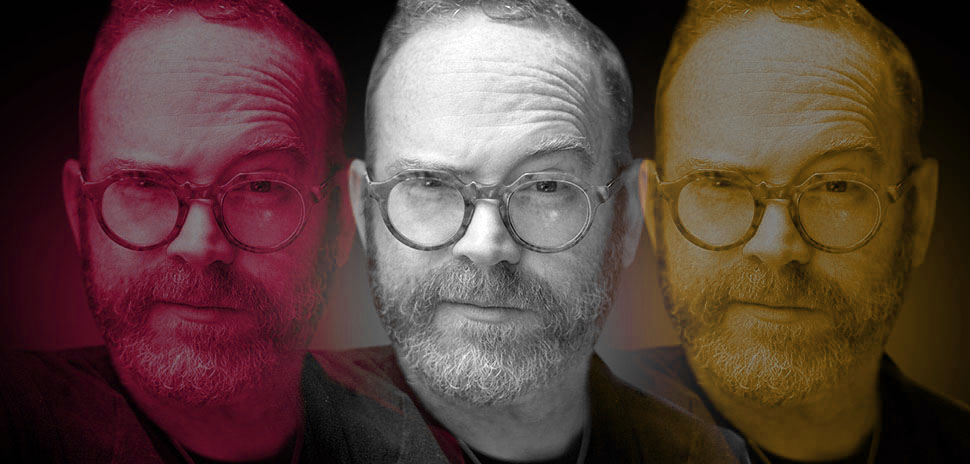
OCEAN WARRIOR
Jeremy McKane
Founder and CEO
OCN.ai
McKane’s OCN.ai gathers and stores data on ocean conditions using blockchain tech, drones, and information from scientific partners to keep ocean sanctuaries pristine with autonomous enforcement. His team has studies collecting data on the ocean’s surface temperature, PH, oxygen levels, ocean color, and more. And they’re testing drones that find and warn vessels illegally operating in marine protected areas, even demonstrating a prop-fouling system that would render a vessel useless. In recent months, OCN.ai signed a letter of intent with Australia for a pilot program and is working on agreements with five other nations. McKane sees a link between COVID-19 and the need to better understand the Earth. “Even with a vaccine, we have to remember why this is a problem to begin with,” he says. “It is our improper relationship to wildlife and their habitats.” That all starts with data, as well as “understanding what we’re doing and what the financial value of a healthy ecosystem looks like.” McKane, a technologist and photographer, might be best known for his artwork showcasing ocean-saving efforts in his installations. “The shortest path between two humans is art,” he says.
FUTURE 50: CREATIVE
 FAIR FASHIONISTA
FAIR FASHIONISTA
Marissa Heyl
Founder and Creative-in-Chief
Symbology Clothing
The anthropologist-turned-fashion maven aims to “make fair trade sexy.” Working with artisans crafting fabrics, primarily in India, she uses fashion to empower women with fair wages and sustained employment. Turned off by the exploitive, superficial tendencies in the fashion industry, she had an “aha moment” while watching a woman create a block-printed tablecloth in a village in India. Heyl envisioned that tablecloth as a beautiful dress. A self-described “hippie, nerdy type with a fashion obsession,” she aims to create designs that look good on everyone. A recent Symbology photoshoot celebrated trans, non-binary, and plus-size models with a central message that “diversity is truly beautiful,” she says. Representation in fashion is about “being seen but also changing minds about what’s considered fashionable.” Heyl also runs Etico, a sustainable women’s collective on Fort Worth’s Magnolia Avenue, where she recruits BIPOC-owned brands.
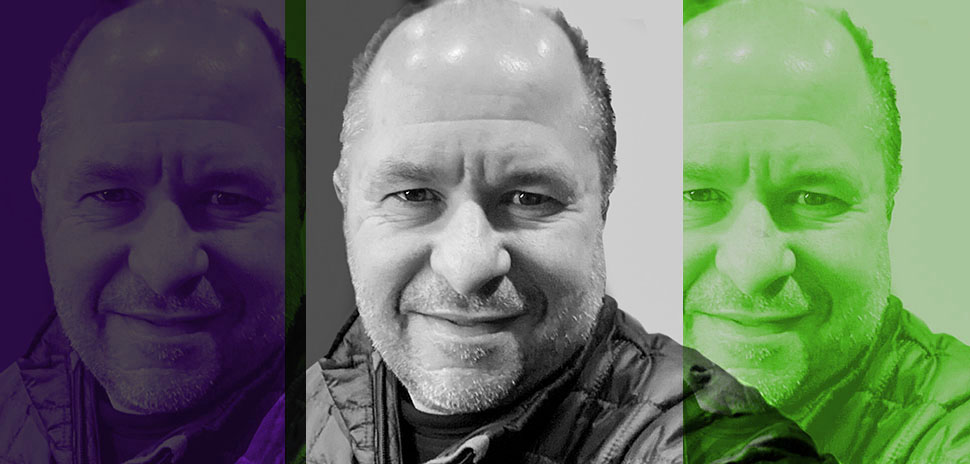 GAMER-IN-CHIEF
GAMER-IN-CHIEF
Tony Goodman
CEO and President
PeopleFun
Goodman, a gaming legend behind Age of Empires, anticipated the rise of casual mobile games. Launching Richardson-based PeopleFun in 2012, he’s enjoyed “massive growth” building creative games like Wordscape for millions of players on iOS and Android. In 2020, the company nearly doubled its staff over seven months, says Goodman, who wants to make Dallas a destination for the gaming industry. With a data-driven approach to testing ideas, the studio’s “blueprint” for bringing games to market “sets the bar higher for other developers.”
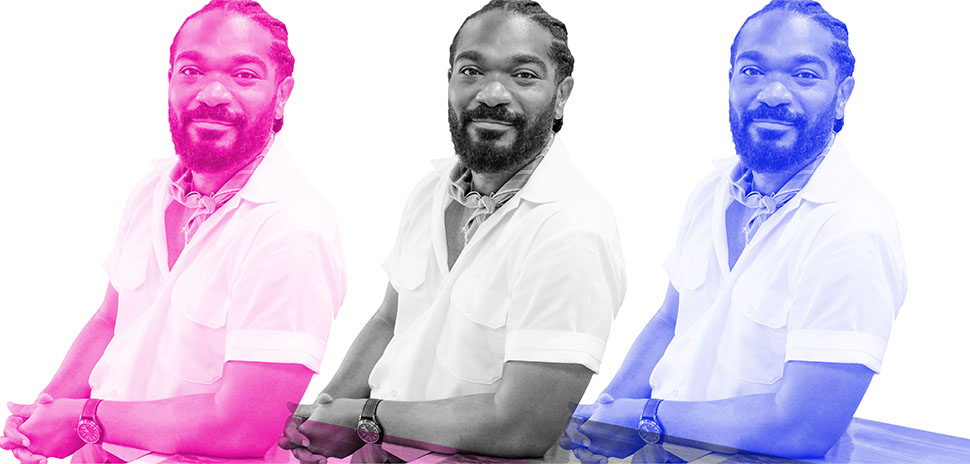 STARTUP STORYTELLER
STARTUP STORYTELLER
Jonathan Morris
Entrepreneur and Host
Magnolia Network
A soon-to-launch docuseries pilot features Morris visiting entrepreneurs across the country sharing their small business stories. As the owner of the Fort Worth Barber Shop and co-developer of a boutique hotel under construction, Morris has a few tales of his own. On his goal of representing Black and Brown entrepreneurs, he says, “When we see ourselves reflected, whether that be a small business down the street or whether that be on a TV screen on Magnolia Network… it’s a really powerful opportunity.”
 AWARD-WINNING FILMMAKER
AWARD-WINNING FILMMAKER
Chyna Robinson
Writer-Director- Producer
The Fort Worth-based filmmaker’s debut feature, “No Ordinary Love,” has managed to garner major success since its international festival run began late last year. Robinson’s micro-budget independent film—created, produced, and shot in North Texas—has racked up accolades including two Best Feature Awards and several Audience Choice Awards. “No Ordinary Love” also ranked No. 21 on the Domestic Box Office list for its official box office premiere in October, as it secures wider distribution. “No Ordinary Love,” a suspenseful tale of two women struggling with abusive relationships as their marriages take a toxic turn, shines a light on the issue. Abuse is an “ugly part of our culture that affects one in three women in their lifetime,” Robinson says. “[I] pulled it out of the shadows for all to see on the big screen.” Following the success of her feature, she wrote and produced a short film, “Lola/Lisa,” which is on the festival circuit. Now the multi-talented Robinson is looking to stretch her creative horizons by writing in different genres, from comedy to religion to sci-fi.
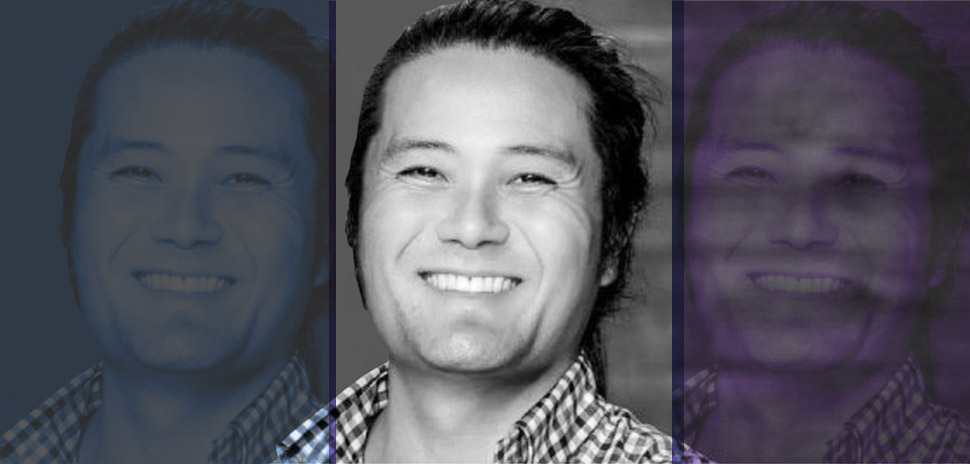 FOOD FUTURIST
FOOD FUTURIST
Tyler Shin
Founder
Revolving Kitchen
Over the last year, food delivery has grown by 125 percent. To meet that surge in a hard-hit economy, Shin offers restaurateurs fully outfitted commercial kitchens for rental from his space in Garland. The “ghost” kitchens overcome capital demands and administrative burdens. Recently launched is the “future of food” in Dallas: a batched menu concept for customers to order from multiple restaurants, satisfying all cravings with one delivery fee.
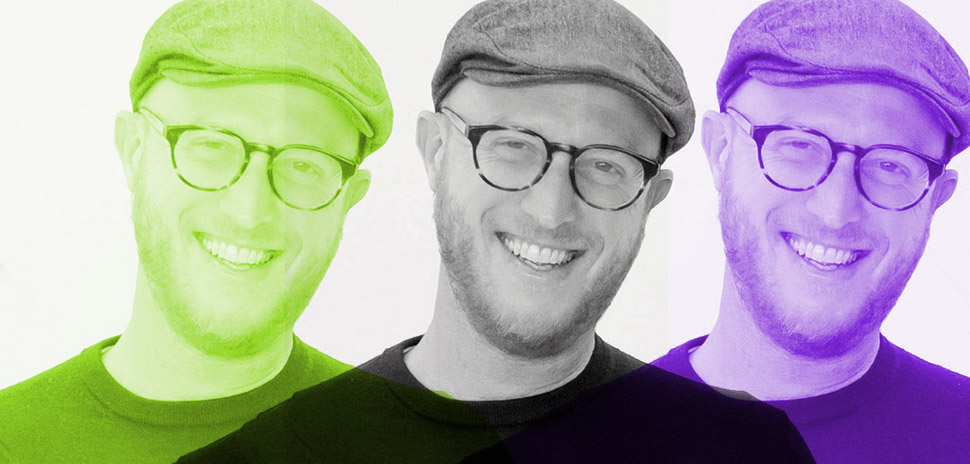 COMMUNITY CHANGEMAKER
COMMUNITY CHANGEMAKER
Jason Roberts
Founder
The Better Block
Artist, civic activist, and urban designer Roberts started Better Block in 2010 to improve our neighborhoods. The nonprofit educates, equips, and empowers locals to revitalize their built environments. Its Wikiblock, an open-source design library with files of benches, chairs, planters, and more, can be cut by a CNC router out of plywood. No glue or nails needed.
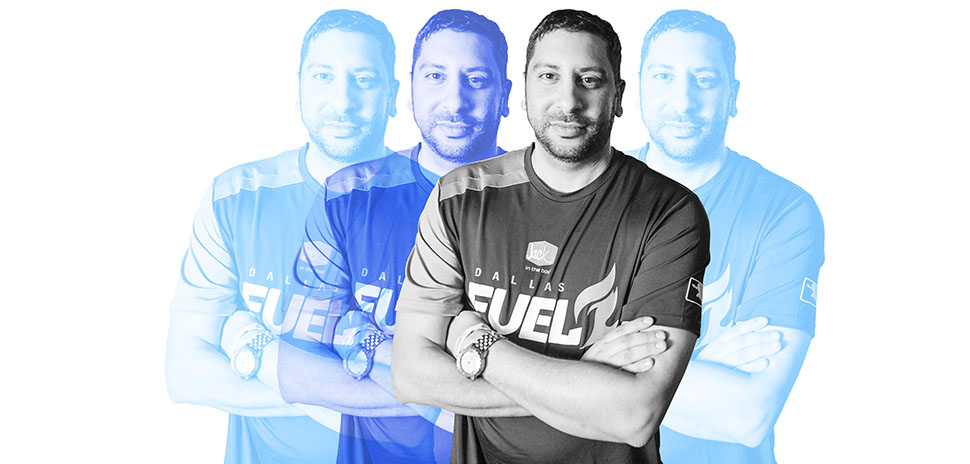 ESPORTS ENGINE
ESPORTS ENGINE
Mike Rufail
Founder and Chief Gaming Officer
Envy Gaming
WHEN THE PANDEMIC LED TO mass sports cancellations early in 2020, esports found its time to shine. Rufail leads the Dallas-based Envy Gaming team, which was able to pivot in ways that other sports can’t. “Esports was born online, so while the cancellation of our live arena events was a significant shift, innovating in how we deliver online competition wasn’t,” Rufail says. The team can pull a crowd. When Envy’s Dallas Fuel team hosted Bud Light Homestand Weekend in Allen in 2019, it ended up selling out with over 4,500 tickets on both days of the esports event. Now, with safety precautions continuing to limit social gatherings, Rufail says, “We’re giving people more ways to engage with our players and teams than ever before—at an affordable price—with plenty of great incentives and in ways that traditional sports and entertainers don’t offer.” Envy’s new membership program comes with exclusive content and direct Team Envy access to fans. With Envy among the major esports organizations in Dallas-Fort Worth alongside Jerry Jones-owned CompLexity Gaming and Mark Cuban-owned Mavs Gaming, the esports team looks to be on a major growth track, even amidst a pandemic. “The potential that esports has—not just in business, but in entertainment, hobbies, fandom, and more—is enormous and growing,” Rufail says. “We continue to see more and more North Texans want to be a part of that experience.”
Artwork by Michael Samples. Photos courtesy of the companies.
A version of this story was originally published in Dallas Innovates 2021: The Resilience Issue.
Read it online
Our fourth annual magazine, Dallas Innovates 2021: The Resilience Issue, highlights Dallas-Fort Worth as a hub for innovation. The collective strength of the innovation ecosystem and intellectual capital in Dallas-Fort Worth is a force to be reckoned with.
![]()
Get on the list.
Dallas Innovates, every day.
Sign up to keep your eye on what’s new and next in Dallas-Fort Worth, every day.

